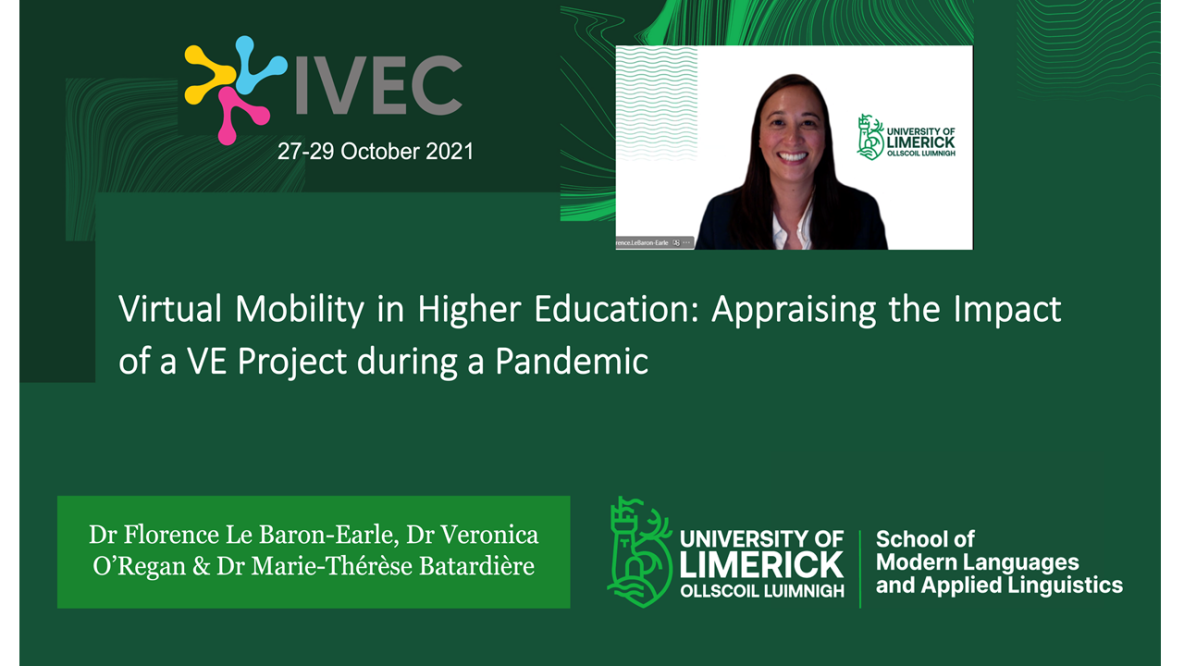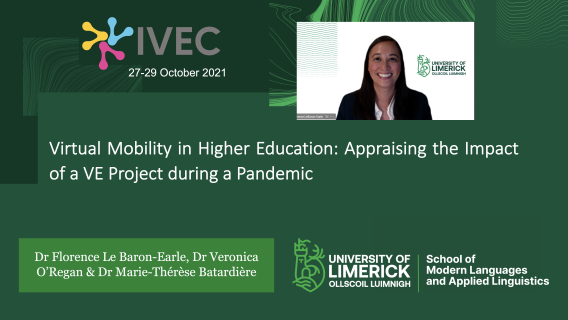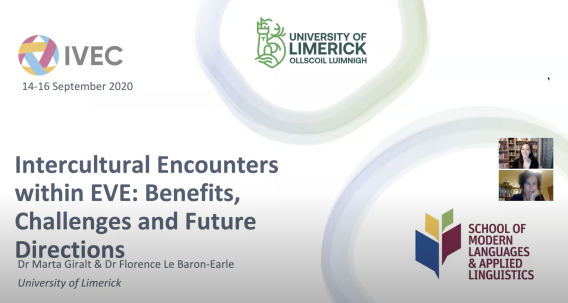

Dr Florence Le Baron-Earle, University Teacher in French and Technology, received funding from the AHSS Faculty Research Committee to present two papers at the annual International Virtual Exchange Conference (IVEC).
She presented a paper entitled ‘Virtual Mobility in Higher Education: Appraising the Impact of a VE Project during a Pandemic‘ at the IVEC 2021 conference on 29 October. The paper - co-authored with Dr Marie-Thérèse Batardière and Dr Veronica O’Regan - reported on the development of a new ‘Virtual Mobility Exchange Project’ focusing on task design and student engagement. The Erasmus Speaks project was embedded within the formal curriculum at UL to replace the study abroad experience for over 400 language students in Autumn 2020. It was subsequently awarded the European Language Label Award 2021 by Léargas and the European Commission.
The third annual IVEC took place 26-29 October 2021, and was co-hosted virtually by Drexel University and East Carolina University, in collaboration with the representative institutions on the IVEC Steering Committee: DePaul University, Durban Institute of Technology, FAUBAI Brazilian Association for International Education, SUNY COIL Center, UNICollaboration, Universidad de Monterrey, and University of Washington Bothell.
This paper follows another successful presentation at the IVEC conference in Newcastle upon Tyne (UK) in September 2020 entitled ‘Intercultural Encounters within EVE: Benefits, Challenges and Future Directions’. Dr Florence Le Baron-Earle and Dr Marta Giralt presented a case study and discussed the outcome of the virtual exchange they have integrated in the MLAL curriculum over the last number of years. With the collaboration of the Sharing Perspectives Foundation, students enrolled in the Broadening module ‘Communication across cultures’ can avail of an inclusive pedagogical approach adopting a blended learning mode, i.e. a mix of online and face-to face instruction. With the support of trained facilitators, students are given the opportunity to interact with international participants from a variety of backgrounds, and to complete a series of collaborative and self-reflecting tasks to develop their digital literacy and global citizenship.


Email: ahss@ul.ie
Phone: +353-61-202700
Postal Address: AHSS Faculty Office, University of Limerick, Limerick, Ireland.